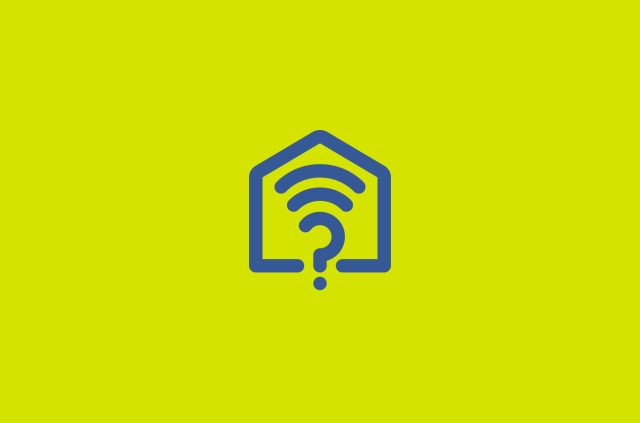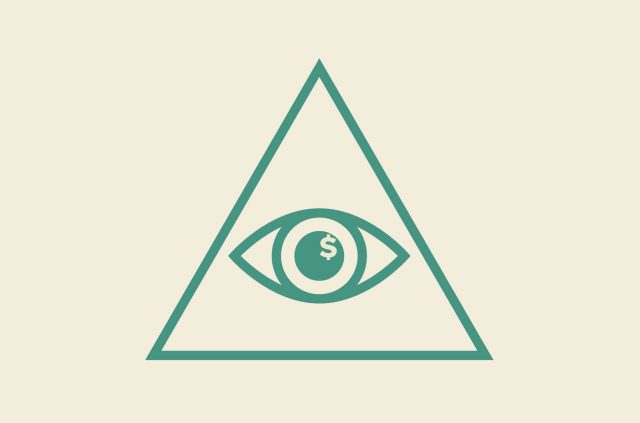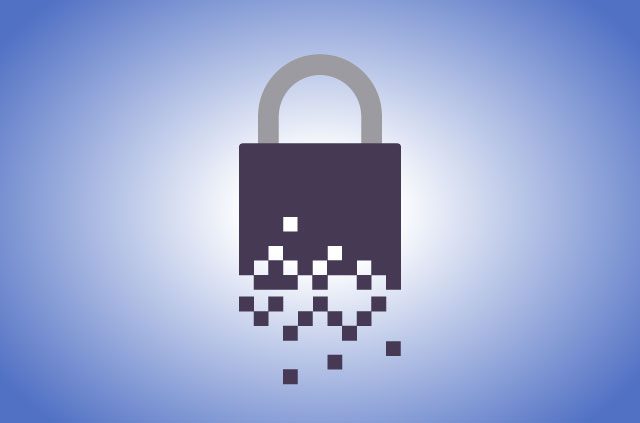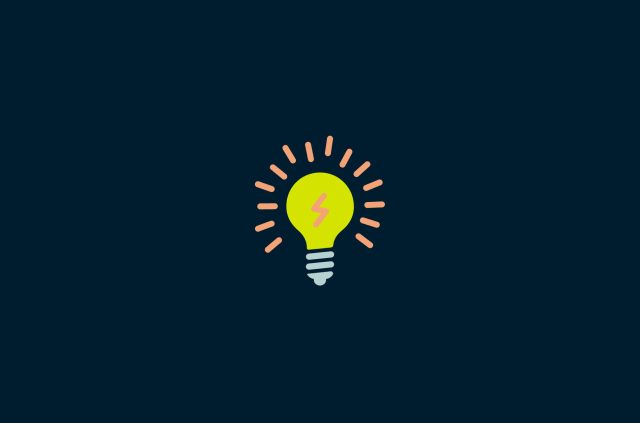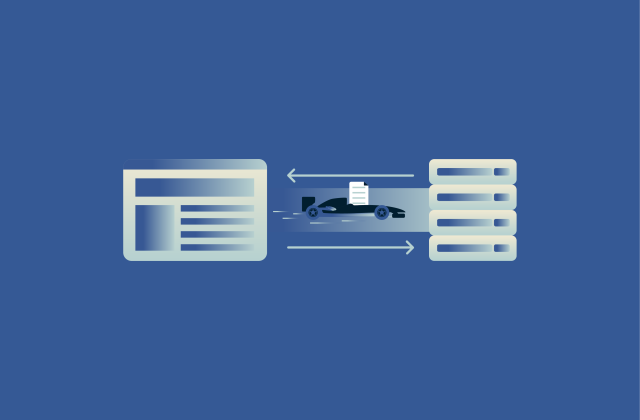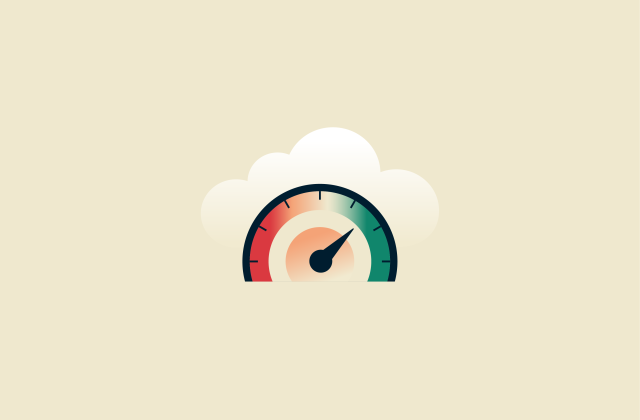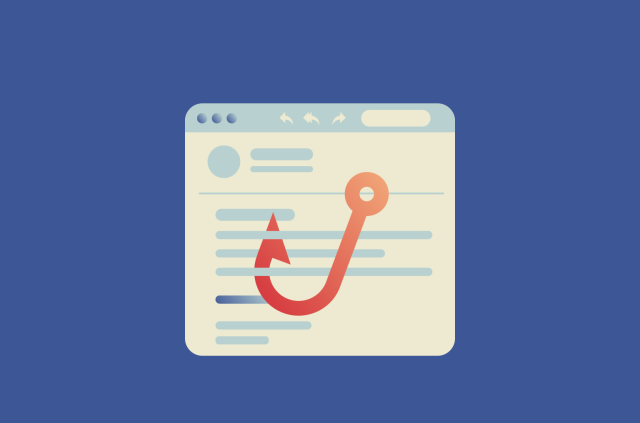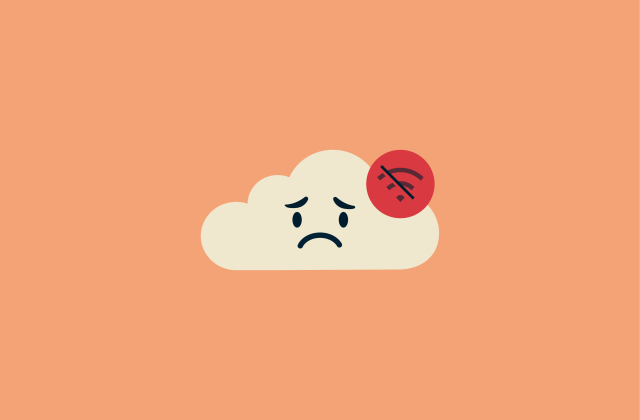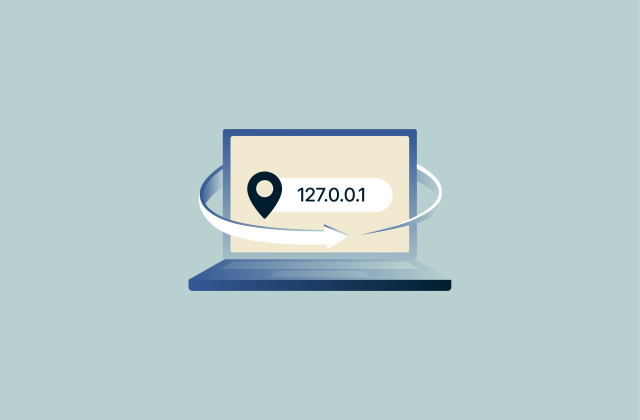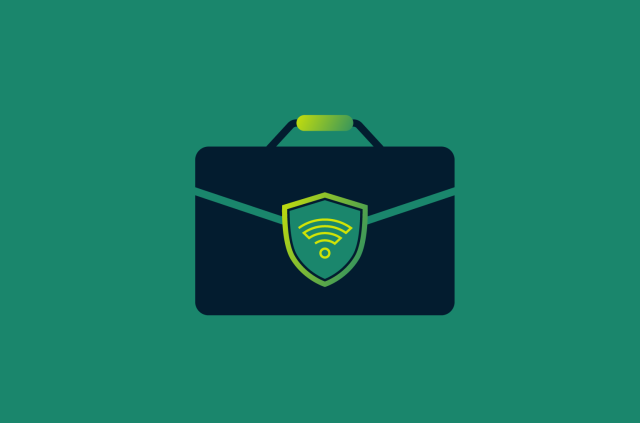What is the Internet of Behaviors (IoB)? Meaning, examples, and privacy impact

The Internet of Behaviors (IoB) is the name for the technological ecosystem that connects data, devices, and psychology to track, predict, and even influence how you act. Today, it’s shaping everything from personalized ads and workplace monitoring to healthcare and education.
In this guide, we’ll explain what the IoB is, how it works in practice, and where it’s being used. You’ll see real-world examples, understand the impact on your privacy, and learn what steps you can take to stay informed and in control.
Understanding the Internet of Behaviors (IoB)
What is the IoB, and how does it work?
The IoB is the practice of collecting and analyzing data about people’s behavior to influence how they act. Think of it as a combination of psychology and technology; when you browse websites, use smart devices, or interact on social media, you leave behind digital clues. These include but are not limited to what you search for, what you buy, and how long you spend reading something.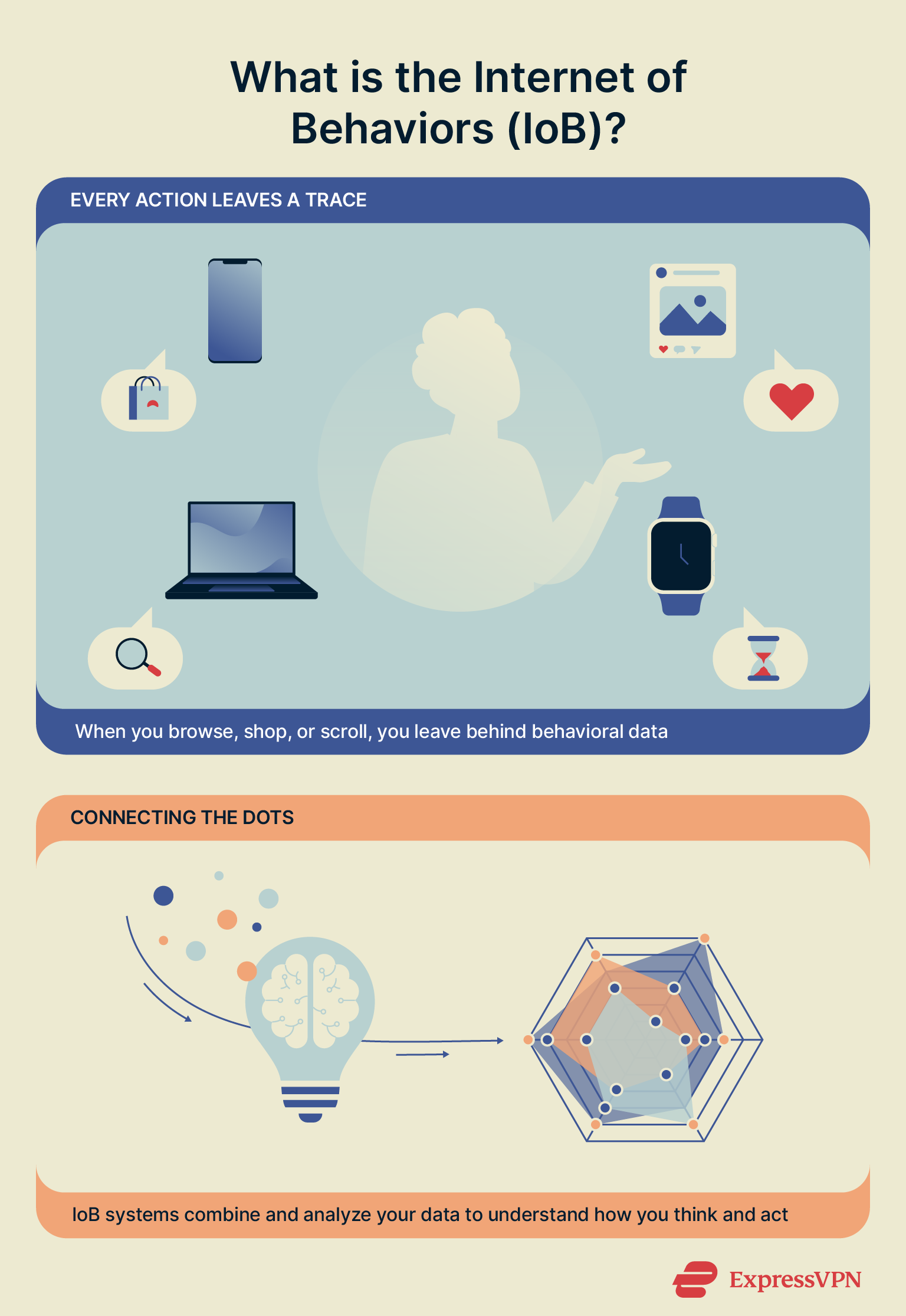 Behind the scenes, IoB systems connect devices through communication methods like Bluetooth Low Energy (BLE), allowing them to share information in real time. These networks feed data into powerful cloud platforms like Amazon Web Services or Microsoft Azure, where it’s stored and analyzed using AI.
Behind the scenes, IoB systems connect devices through communication methods like Bluetooth Low Energy (BLE), allowing them to share information in real time. These networks feed data into powerful cloud platforms like Amazon Web Services or Microsoft Azure, where it’s stored and analyzed using AI.
To protect your data, these connections are often encrypted using security protocols such as Transport Layer Security (TLS), which helps keep your information private while it’s being transmitted or stored.
By pulling data from multiple sources such as phones, apps, and wearables and analyzing it at scale, the IoB can reveal patterns and predict what motivates people. This insight is then used by companies to tailor services and marketing, by governments to shape public policy, and by employers to track productivity.
How the IoB builds on the Internet of Things (IoT)
The IoT is a network of connected physical devices, like smartwatches, home assistants, or location tags, that collect your data. The IoB takes this a step further by leveraging that data to understand and potentially influence your behavior.
For example, if your fitness tracker notices you work out more on weekends but tend to snack heavily on Mondays, a company might use that data to send targeted wellness ads. In other words, the IoB uses IoT data, AI, and machine learning algorithms to determine behavioral patterns and increase the relevance of the content you see.
Key technologies powering the IoB
The IoB wouldn’t exist without a combination of advanced technologies working together behind the scenes. It starts with data collection, which is done through sensors, apps, smart devices, and your general online activity. Communication protocols such as Wi-Fi and BLE allow devices to share that data efficiently.
Next comes edge computing, which lets some data be processed directly on the device or nearby, reducing delays and easing the load on cloud systems. That said, cloud computing still plays a major role by storing massive amounts of data and making it accessible for broader analysis.
Machine learning algorithms then analyze this data to identify trends, while behavioral science helps interpret what those trends say about your motivations or emotional state. Databases keep everything organized, and APIs connect these systems to other apps or services.
Altogether, these components form an intelligent network that not only tracks behavior but also learns from it, enabling accurate predictions and even influencing what you might do next.
The role of AI and machine learning in IoB behavior analysis
AI and machine learning give the IoB its power by analyzing huge amounts of behavioral data and spotting patterns that would take a human years to figure out. For example, AI might quickly detect that people who watch food videos late at night often end up ordering takeout shortly after.
That insight can be used to send targeted ads right before you’re likely to act. Over time, machine learning predicts what you’ll do next ever more accurately based on your past behavior. This is what makes the IoB so powerful and potentially invasive.
How the IoB tracks and influences you
IoB technology isn’t just about collecting data; it’s about using that data to shape your decisions, often in ways you don’t notice. From the content you see to the products you buy, your behavior is being watched, analyzed, and gently pushed in certain directions. Let’s see how that works in everyday life.
Social media algorithms and behavioral nudging
Every time you like, share, or scroll on social media, algorithms record your interactions. These smart systems then learn what you enjoy and keep showing you more of it to keep you glued to the screen. But it’s more than just entertainment. By carefully choosing what you see and when, these platforms can subtly “nudge” your behavior. Whether it’s encouraging a purchase, shaping your opinions, or influencing how you feel, you’re not just browsing; you’re being steered.
But it’s more than just entertainment. By carefully choosing what you see and when, these platforms can subtly “nudge” your behavior. Whether it’s encouraging a purchase, shaping your opinions, or influencing how you feel, you’re not just browsing; you’re being steered.
Personalized content and recommendation engines
Have you ever wondered how Netflix seems to know exactly what you want to watch next? That’s a recommendation engine at work. It learns from your past behavior, seeing what you watched, paused, skipped, or searched, and then makes predictions about what you’ll enjoy.
The more you engage, the smarter it gets. This kind of personalization makes life more convenient, but it also shapes your habits and narrows your choices without you realizing it, not to mention invading your privacy.
The IoB in online shopping, finance, and spending habits
The IoB plays a big role in how you shop online. Websites track your clicks, purchases, and time spent on a product page. That data is used to target you with tailored ads, limited-time offers, or reminders to complete your purchase.
Some apps even track your financial habits, including things such as how often you spend or when you’re most likely to make purchases. Over time, this creates a detailed behavioral profile that can be used to influence future spending.
The IoB in retail surveillance and consumer footprinting
Even when you’re shopping in person, you’re being watched, often more than you think. Retail stores use cameras, Wi-Fi signals, and motion sensors to track how you move through the space. Did you stop in front of a display? How long did you linger? That behavior is tracked and analyzed to understand your shopping habits.
This kind of physical tracking, combined with online data, creates a “consumer footprint.” This is a full behavioral profile that helps retailers fine-tune layouts, promotions, and pricing. It’s all in the name of boosted sales and profits, meaning that these practices will grow and evolve over time.
Health, wellness, and biometric data tracking
Smartwatches and fitness apps don’t just count your steps; they gather detailed health data like your heart rate, sleep patterns, stress levels, and even how often you stand up. This biometric data can be incredibly useful for personal wellness, but it’s also used by marketers.
For example, a health app might suggest a product based on your activity level or mood. This is a classic example of the IoB in action, turning your body’s signals into data that can guide your choices.
Workplace monitoring and performance feedback
More companies are using digital tools to monitor how employees work, tracking keyboard activity, time spent on tasks, and even facial expressions during video calls. While it can help boost productivity and flag burnout, it also raises serious privacy concerns.
The idea is to use data to improve performance and provide feedback, but it can feel invasive if done without clear boundaries. This kind of workplace IoB turns day-to-day actions into measurable behavior, sometimes leading to judgment or micromanagement.
Gamification and behavioral incentives
Gamification means turning everyday tasks into games. You’ve probably seen it in fitness apps, language learning platforms, or customer loyalty programs: earn points, hit streaks, unlock badges. It’s fun, but it’s also strategy.
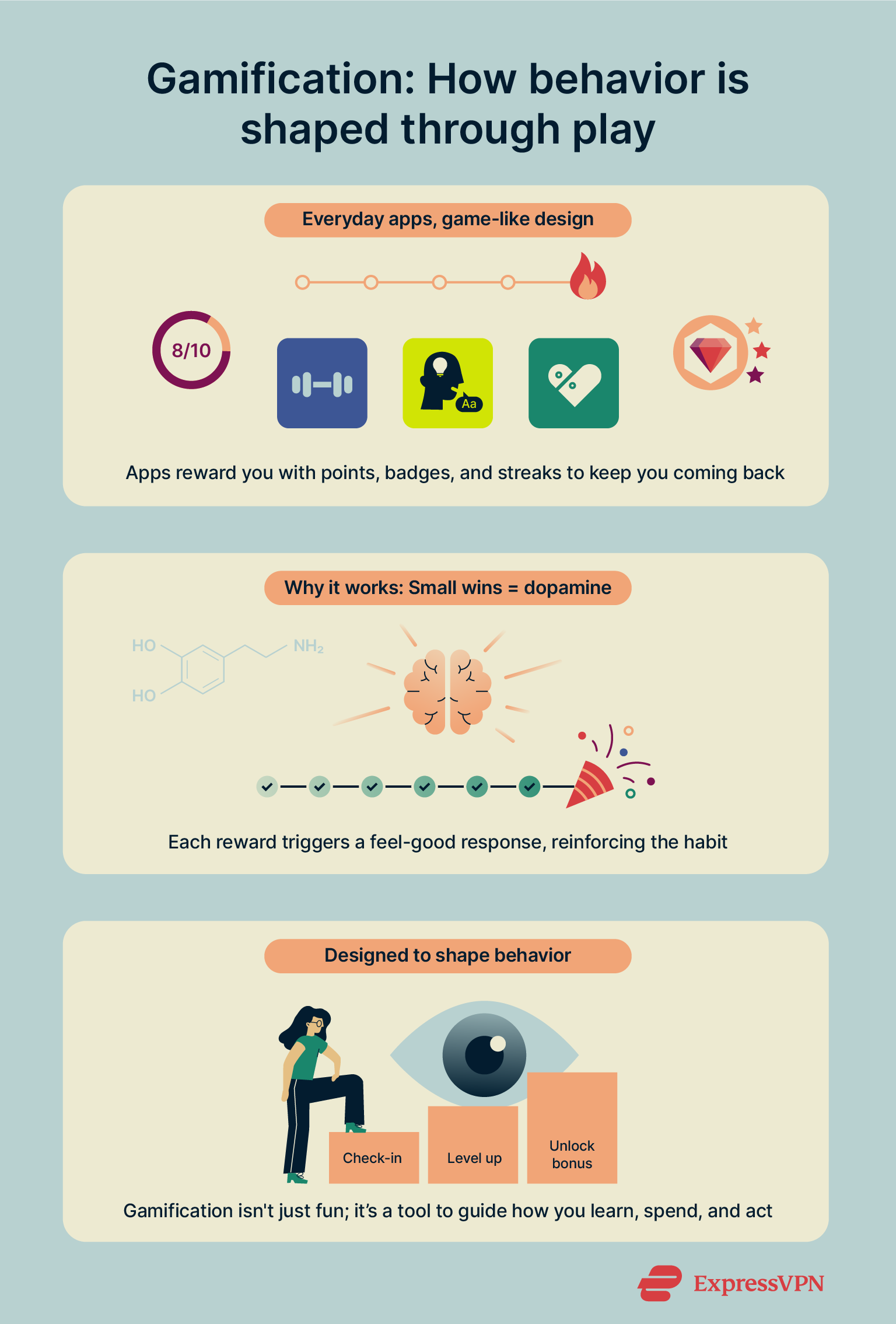
Gamification encourages habits and keeps you engaged by giving you a dopamine hit every time you have a small win. Businesses use it to make you spend more time on their platforms, learn faster, or even work harder. In the IoB world, these “games” are carefully designed to shape your behavior through positive reinforcement.
Why companies are embracing the IoB
Enhanced customer insights and personalization
One of the biggest reasons companies use the IoB is to better understand their customers. When a business knows what you like, how you shop, and when you’re most likely to spend, it can tailor products, ads, and services just for you. This level of personalization makes you feel like the brand “gets” you, and it usually leads to more sales.
Whether it’s showing the right product at the right time or recommending content you’re likely to enjoy, it all starts with learning your behavior.
Predictive behavior modeling in marketing
The IoB lets marketers move beyond guessing. By analyzing patterns in your behavior, like when you click, what you ignore, or how long you stay on a page, they can predict what you might do next.
For example, if the system sees that people who buy video games often search for parental control systems soon after, it can start sending more targeted ads to new customers. It’s all about staying one step ahead and using your past behavior to shape your future actions.
Applications in healthcare, education, and public safety
The IoB is shaping healthcare in meaningful ways. Wearable devices can track a person’s heart rate, sleep patterns, and activity levels, helping doctors tailor treatment plans based on real-world data. This data supports professionals in predicting potential health issues before they become serious.
The IoB also plays a key role in telemedicine by allowing healthcare providers to monitor patients remotely. These devices can send medication reminders and allow doctors to respond faster and make better-informed decisions about time-sensitive issues.
In education, online learning platforms can adapt lessons based on how a student learns best, adjusting their courses based on the strengths and weaknesses they’ve observed in the student’s previous work.
And in public safety, law enforcement agencies can analyze behavioral data from social media or public alerts to identify potential threats or early signs of unrest. These uses aim to improve outcomes, but they also rely on constant behavioral tracking.
Urban planning and transportation optimization
IoB systems are playing an increasingly important role in shaping the future of cities. By bringing together information from transportation networks, environmental sensors, and residents’ feedback, these systems give urban planners a clearer picture of how people interact with their environments.
This behavioral insight informs decisions about where to invest in infrastructure, how to improve public services, and how to design smarter, more livable urban spaces.
Transportation is another area where the IoB is making an impact. Apps that track commuting habits help adjust transit routes and schedules to meet demand, while real-time data from GPS, mobile devices, and traffic monitoring tools allows for better traffic flow management. These systems can even suggest alternative routes to ease congestion and keep vehicles moving efficiently.
IoB data also extends to essential services like energy use and waste collection. By examining usage patterns across different neighborhoods, city systems can distribute resources more effectively, cut operational waste, and promote sustainable living.
Real-world examples of the IoB in action
You’ve probably seen the IoB at work without realizing it. Fitness apps that suggest workouts based on your mood, smart thermostats that learn your schedule, and online stores that know when you’re about to reorder something? They’re all using behavioral data.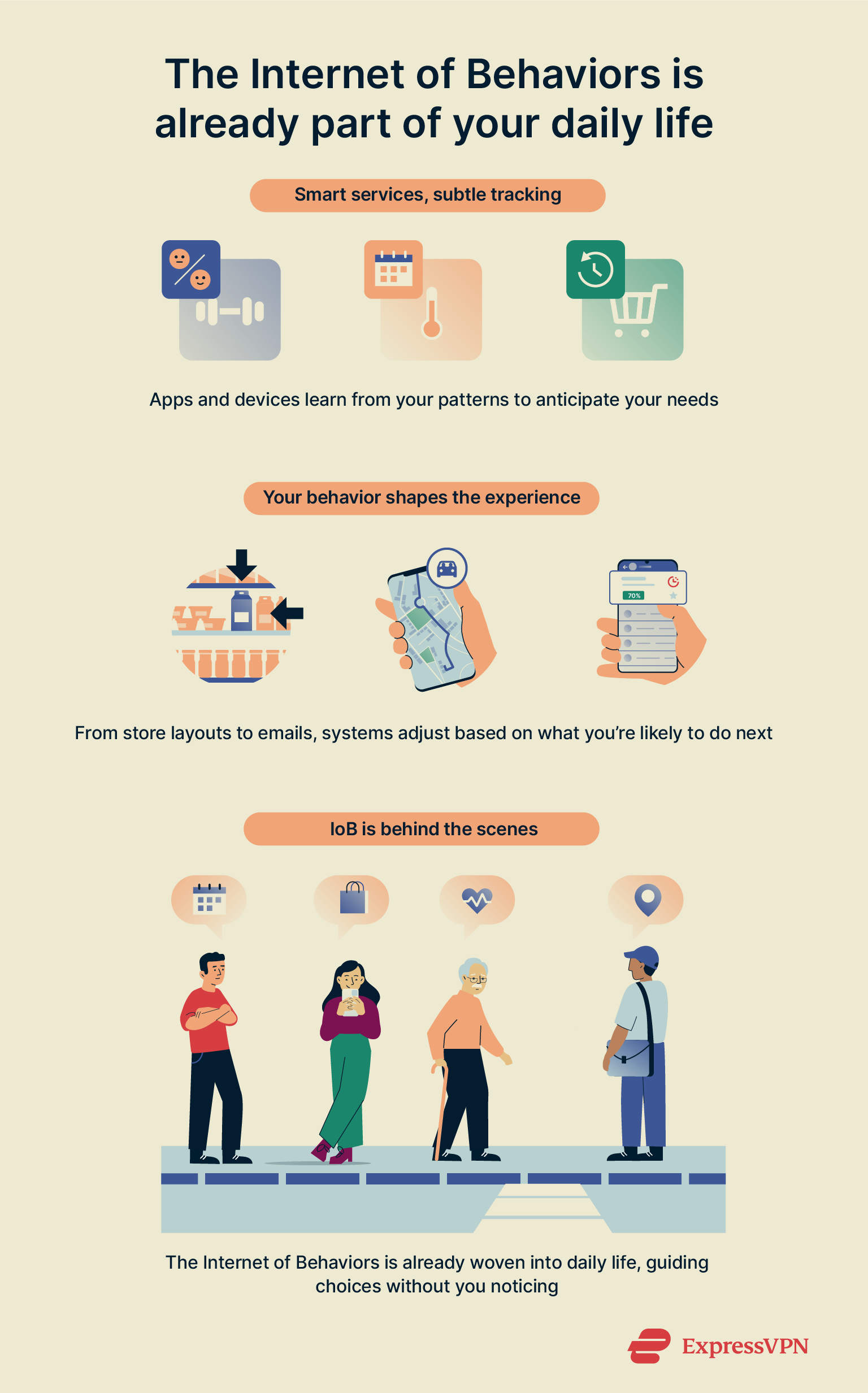 Here are a few companies that are already using IoB technology:
Here are a few companies that are already using IoB technology:
- Peloton: This fitness platform uses behavioral data, like when you work out, how long, and what classes you prefer, to suggest new routines and instructors tailored to your habits.
- Nest thermostats: Google’s Nest learns your daily routine and preferences over time, adjusting the temperature automatically to save energy and improve comfort.
- Walmart: The retailer uses in-store sensors and location data to monitor how customers move through aisles, helping optimize product placement and improve store layouts.
- Uber: The app analyzes your ride history, time of day, and common routes to predict where you're likely to go next and offer faster suggestions.
- Spotify: The music streaming service tracks your listening habits, mood-based playlists, and skip behavior to personalize recommendations and even indirectly influence your mood throughout the day.
What’s next for the IoB: Innovations and trends
The future of the IoB is all about going deeper and getting smarter. More devices are being equipped with sensors that can gather detailed behavioral data, like cars that detect drowsiness or apps that analyze vocal tone to gauge emotion. As AI becomes more advanced, predictions will sharpen, and personalization will start to feel remarkably intuitive.
Looking ahead, the fusion of AI and the IoB is set to reshape both society and technology. Expect real-time behavioral interventions, hyper-personalized experiences, and larger, more connected IoT ecosystems that feed into intelligent systems. This convergence could unlock powerful possibilities, like smart cities that respond to residents’ habits or healthcare that adapts to each person’s unique needs through predictive treatment.
The dark side of the IoB
Privacy risks and data overexposure
The biggest concern with the IoB is how much personal data it collects and how that data might be used or misused. Tracking everything from your fitness level to your shopping habits creates a detailed profile of who you are.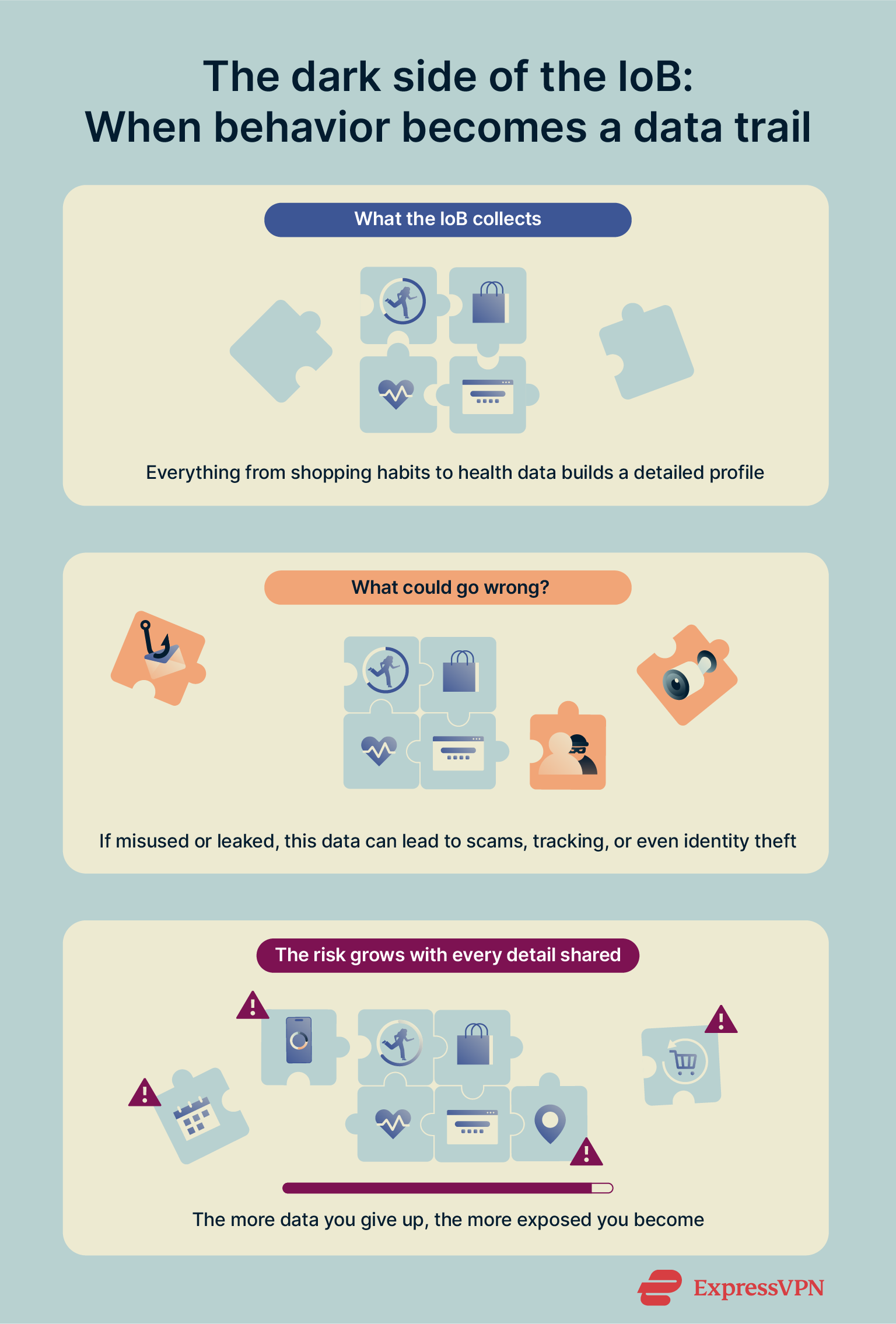 If that data ends up with the wrong people or is shared without your consent, it could result in privacy violations, scams tailored specifically to you, or even identity theft. The more personal details you surrender, the greater your vulnerability.
If that data ends up with the wrong people or is shared without your consent, it could result in privacy violations, scams tailored specifically to you, or even identity theft. The more personal details you surrender, the greater your vulnerability.
Algorithmic bias and discrimination
IoB systems rely heavily on algorithms, and those algorithms aren’t always fair. If the data used to train them is flawed or one-sided, the outcomes can be biased, too. That means people could be treated differently based on race, gender, age, or location without even realizing it.
For instance, a hiring tool might consistently prefer certain applicants simply because it was trained on biased past data. Or in healthcare, a monitoring system built around one group’s data might give less accurate advice to people from other backgrounds. When decisions about your life are made by algorithms, those hidden biases can lead to serious consequences.
Reputation scoring and the social credit debate
Some IoB systems will assign a score to your behavior. In certain countries, governments and companies are testing social credit systems that assign ratings based on how people behave online and in the real world.
Supporters argue these systems can help detect threats like crime or terrorism or reward civic responsibility. But they can also be used to monitor political loyalty and restrict dissent. These scores can also affect things like job opportunities, travel freedom, or loan approvals.
Consent, transparency, and manipulative design
Many IoB systems work quietly in the background, collecting and analyzing your behavioral data without you fully understanding what’s happening. You might agree to terms of service without knowing how your data will be used or that it’s being leveraged to subtly shape your choices.
This lack of transparency can lead to manipulative design, where systems nudge you to act a certain way without your informed consent. In the wrong hands, the IoB shifts from helpful to exploitative.
How to safeguard your privacy in an IoB world
You may not be able to stop the IoB, but you can control how much it sees. Protecting your privacy requires a few smart habits and a basic understanding of how your data is used. Here’s how to get started.
Adjust privacy settings on devices and apps
To reduce behavior tracking, tighten your device and app privacy settings. Here’s how:
- Disable activity tracking: Features like ad personalization or app usage logging can be turned off. On Android, for example, there are several privacy settings worth disabling to cut down on unnecessary data collection.
- Turn off background data sharing: Prevent apps from syncing or collecting data in the background when not in use.
- Limit permissions: Turn off access to your location, microphone, and camera for apps that don’t need them. Many apps request access to features they don’t use.
- Use messaging apps with end-to-end encryption (E2EE): Not all apps support this by default. Choose privacy-focused options that offer E2EE to keep your conversations private.
- Avoid signing into apps using third-party accounts like Google or Facebook. These logins often come with extensive data sharing across platforms.
Use privacy-focused browsers
Standard browsers and search engines often collect your activity to serve targeted ads. In contrast, privacy-focused browsers like Firefox or LibreWolf block trackers by default and limit data collection. Similarly, search engines like DuckDuckGo don’t log your queries or build a profile on you, making them a better choice if you want to reduce behavioral tracking.
Use a virtual private network (VPN)
A VPN like ExpressVPN hides your real IP address, making it harder to link your online activity to your physical location. It also encrypts all traffic between your device and the internet, so third parties, like your internet provider or anyone on public Wi-Fi, can’t see what you’re doing. This helps prevent internet service providers (ISPs) from logging or sharing your behavioral data.
However, bear in mind that a VPN doesn’t stop tracking by apps or platforms you're logged into; Facebook, Google, and similar services can still monitor your behavior across devices.
Think before you share (behavioral awareness)
Even small actions such as likes, comments, and check-ins can reveal habits and emotions. Be mindful of what you post or click. Over time, this data can be used to build a behavioral profile that’s more detailed than you might expect.
Before posting, reacting, or clicking on something, consider how it might reflect your mood, preferences, or routine. Being intentional with your digital behavior is one of the simplest ways to reduce how much of yourself you give away online.
Understand terms and policy updates
Read the privacy policies when apps update and look for changes in what data is collected or how it’s used so you can stay in control. Some apps expand data collection quietly through policy changes, so staying alert gives you a chance to adjust your settings or stop using the service if needed.
Clean up your digital footprint regularly
Old apps, forgotten accounts, and lingering browser data can quietly feed into behavioral tracking over time. Deleting apps you no longer use, clearing your browsing history, and closing outdated accounts helps reduce the amount of your past activity that’s still accessible.
Some platforms also let you request full data deletion; use these options when available to minimize what companies retain about you. A regular digital cleanup limits unnecessary exposure and helps keep your behavioral profile lean.
Regulation and ethical governance of the IoB
Global policy trends and privacy legislation
Governments around the world are starting to catch up with the challenges the IoB presents. Laws like the General Data Protection Regulation (GDPR) in Europe and the California Consumer Privacy Act (CCPA) in the U.S. aim to give people more control over their personal data. They allow users to learn what’s collected and how it’s used and to opt out if they choose.
These laws are a step in the right direction, but not every country has strong protections. As the IoB grows, more nations are considering making rules to manage how companies collect, store, and use behavioral data.
The role of AI ethics in behavioral tracking
An ethical framework for AI is critical to ensure responsible, fair, and transparent use of behavioral data. Key considerations include:
- Clear consent and transparency: People should know what data is being collected, why, and who it’s shared with. Clear policies help build trust and give users control.
- Privacy and limited data collection: IoB systems should be built with privacy in mind, using tools like data anonymization and only collecting what’s truly needed.
- Avoiding manipulation: The IoB should guide behavior, not exploit it. Ethical use means respecting people’s choices and avoiding tricks that limit their freedom.
- Fairness and reducing bias: Algorithms must treat everyone fairly. That means regular checks and human involvement to spot and fix bias.
- Accountability and oversight: Companies should follow laws, explain how AI works, and make sure people stay involved in important decisions regarding their data.
- Creating a trustworthy IoB: The goal is a digital world where privacy, security, and user empowerment come first, while smart innovation is still supported.
FAQ: Common questions about the Internet of Behaviors
What is the IoB?
The IoB stands for the Internet of Behaviors, which refers to the tracking, analysis, and influence of human behavior through data. It works by using behavioral data from apps, devices, and online activity to predict and guide actions.
What is an example of the IoB?
A common example of the Internet of Behaviors (IoB) is how social media platforms use your likes and shares to personalize your feed and show targeted ads. It’s not just social media, though; companies and services use behavior tracking in areas like fitness, shopping, and transportation, too.
What is the difference between the IoT and the IoB?
The Internet of Things (IoT) connects physical devices that collect data, while the Internet of Behaviors (IoB) uses that data to understand and influence people. Both systems work in tandem to deliver accurate analytics.
How can I reduce my exposure to IoB tracking?
You can reduce your Internet of Behaviors (IoB) exposure by using a VPN, adjusting privacy settings, limiting app permissions, using private browsers, and being more cautious about what you share. Most of these steps are easy to implement and allow you to take some control over your data.
Can the IoB be regulated effectively?
Yes, but it’s still a work in progress. While some countries have strong privacy laws, many are still developing rules to catch up with the pace of behavior-based tracking.
What data sources does the IoB rely on?
The Internet of Behaviors (IoB) gathers data from a wide range of sources, including smart devices, websites, apps, cameras, and social media platforms.
Take the first step to protect yourself online. Try ExpressVPN risk-free.
Get ExpressVPN



